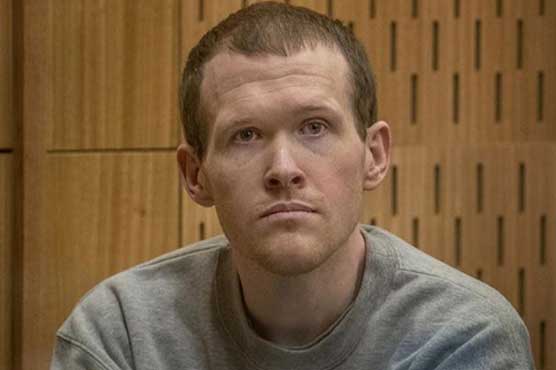New Zealand shooter emotionless as victims' families address sentencing hearing

Lawyers expect the 29-year-old to be the first person jailed for life without parole in New Zealand.
CHRISTCHURCH (AFP) - The white supremacist who murdered 51 Muslims in last year’s New Zealand mosques shooting showed no emotion Monday as distraught survivors confronted him in court with harrowing accounts of the atrocity.
At the opening of the sentencing hearing in a Christchurch courtroom, prosecutors revealed chilling details of a meticulously planned attack in which Brenton Tarrant wanted "to have shot more people than he did".
With the Australian gunman face-to-face with the bereaved families and wounded for the first time, survivors told of hiding under bodies, of forgiving Tarrant, and of living with the sound of an automatic rifle ringing in their ears.
Held amid tight security with snipers positioned on downtown rooftops, the hearing was told how on March 15 last year the heavily-armed Tarrant opened fire on men, women and children, ignoring pleas for help and driving over one body as he moved from one mosque to the next.
When he saw three-year-old Mucad Ibrahim clinging to his father’s leg, Tarrant killed him "with two precisely aimed shots," prosecutor Barnaby Hawes told the court.
Tarrant has pleaded guilty to 51 charges of murder, 40 of attempted murder and one of terrorism after storming into two mosques in Christchurch, with the rampage ending when police stopped him as he travelled to a third.
Lawyers expect the 29-year-old to be the first person jailed for life without parole in New Zealand.
Wearing grey prison clothing and surrounded in the dock by three police officers, the 29-year-old remained silent, occasionally looking around the room, as Hawes delivered a chilling summary of facts.
"He admitted going into both mosques intending to kill as many people as he could," Hawes said.
"He stated that he wanted to have shot more people than he did and was on the way to another mosque in Ashburton to carry out another attack when he was stopped," he said.
"In his interview, the defendant referred to his attacks as ‘terror attacks’.
"He further stated the attacks were motivated by his ideological beliefs and he intended to instil fear into those he described as ‘invaders’, including the Muslim population or more generally non-European immigrants."
"He stated that he wanted to have shot more people than he did and was on the way to another mosque in Ashburton to carry out another attack when he was stopped," he said.
‘Brainwashed terrorist’
Abdiaziz Ali Jama, a 44-year-old Somali refugee, saw her brother-in-law Muse Awale shot dead, and said she continued to suffer trauma.
"I see the images and I hear the constant sound rata-rata-rata -- the sound of the gun shooting -- in my head," said Jama.
"I have flashbacks, seeing dead bodies all around me. Blood everywhere," added a son of Ashraf Ali, another victim.
Gamal Fouda, the Al Noor mosque Imam, said he was standing in the pulpit "and saw the hate in the eyes of a brainwashed terrorist" before telling Tarrant: "Your hatred is unnecessary."
The court was told Tarrant arrived in New Zealand in 2017 and based himself in Dunedin, 360 kilometres (220 miles) south of Christchurch, where he built up a collection of high-powered firearms and purchased more than 7,000 rounds of ammunition.
Two months before the attack, he drove to Christchurch and flew a drone over the Al Noor mosque, filming the grounds and buildings, including entrances and exits, with detailed notes about travelling between mosques.
On Friday, March 15, 2019 he left his Dunedin address and drove to Christchurch armed with a range of high-powered weapons on which he had written references to historic battles, figures of the Crusades and more recent terror attacks and symbols.
He had ammunition pre-loaded into magazines, a camera mounted on his helmet to record the attacks and modified petrol containers "to burn down the mosques and said he wished he had done so," Hawes said.
In the minutes leading up to the storming of the al Noor mosque, he sent his radical 74-page manifesto to an extremist website, alerted his family to what he was about to do and sent emails containing threats to attack the mosques to numerous media agencies.
Tarrant is representing himself at the hearing. Judge Cameron Mander has imposed reporting restrictions to prevent him using the court as a platform for extremist views.
Mander is expected to hand down a sentence on Thursday.


